Petrolicious celebrates the inventions, the personalities, and the aesthetics that ignite a collective lust for great automotive machines, and it seeks to inform, entertain, and inspire its community of aficionados and pique the interest of those who have been missing out.
Today, Petrolicious takes up the story…
It’s still dark. The sky looks bruised, but ready for another dawn. The sun hasn’t broken the horizon yet. The world hasn’t started spinning fast enough for emails, texting, and traffic. It’s just quiet, heavy stillness. This is when Goktug Sarios likes to wake up. “That morning quietness,” he says, “it’s very special to me. You breathe. You see things. You feel things.”
In the garage, something waits with the same calm. A Lancia Delta Integrale Evo II. Yellow. The kind of yellow that doesn’t just catch your eye, but pulls you in. “It gives you a feeling before you even know why,” Goktug says. Before the Alcantara, before the Recaros, before the flared arches, it’s the yellow that hits first.
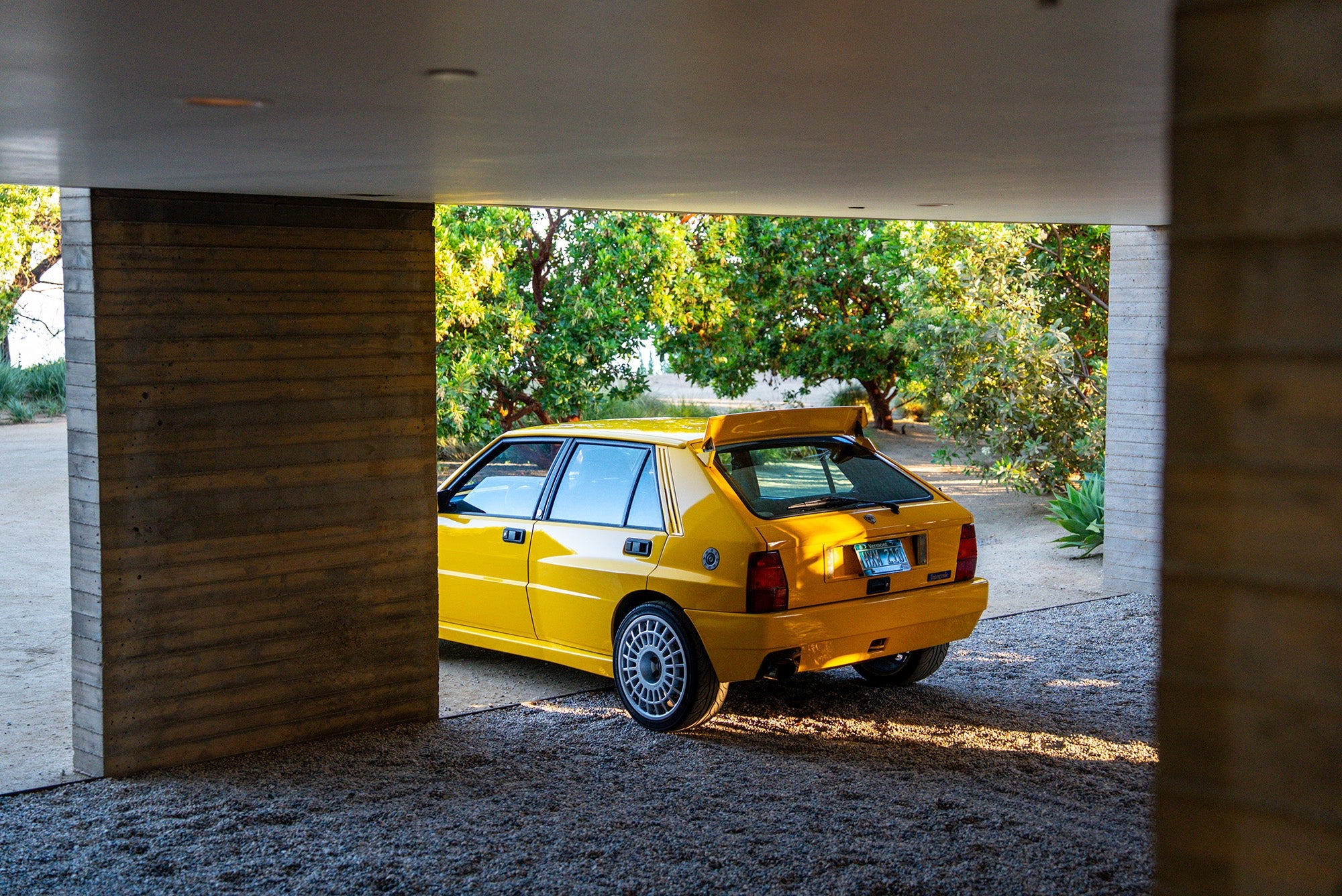
“It was never supposed to be this good,” Goktug says. “It was built for groceries. Then it started winning everything.” The Evo II is the final iteration of a Group A legend. From 1987 to 1992, the Delta carried Lancia to six straight World Rally Championships. That’s six in a row. Six. An achievement no one has matched since.
Originally conceived as a family hatchback, it was reshaped by the strict Group A homologation rules that demanded road-going versions of rally cars, it became a weapon through necessity. The road going Evo 2 is the ultimate distillation of all of it. The rules, the engineering, and what pushing the limits of what a chassis can be means. It is truly a Holy Grail.
It’s fitting that Giorgetto Giugiaro designed it. The same man who created the Volkswagen Golf GTI, the roots of the hot hatch, also shaped this car. The GTI had proved that a small, practical hatchback could be a tool for daily life, especially for young people in crowded cities, while still being something full of youth. Something fun, alive, and spirited. The Integrale Evo II took that idea further. If the GTI was the spark, the Integrale Evo II was the raging wildfire, packing rally-bred suspension, real power, and the kind of character that could turn errands into events.
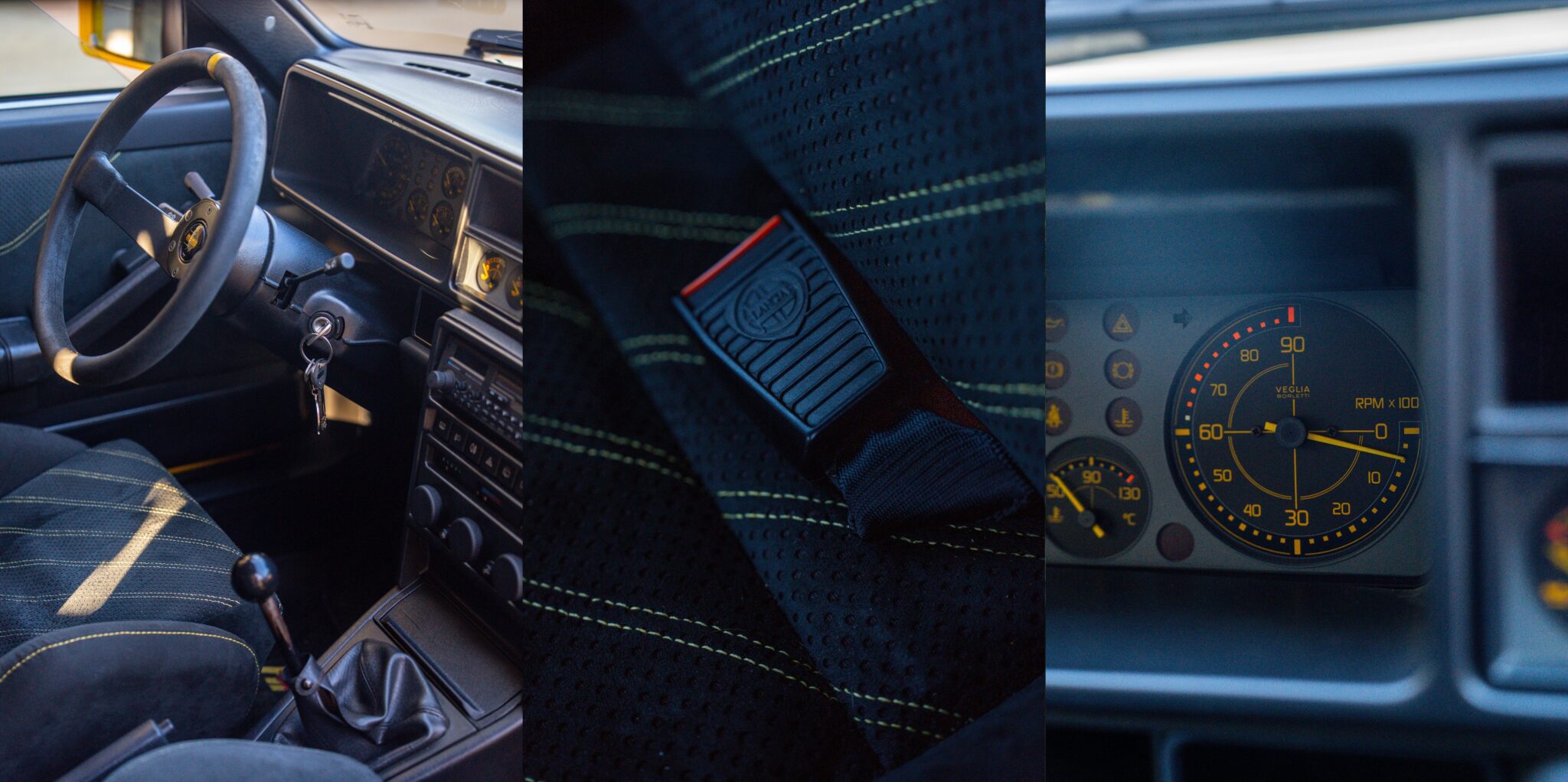
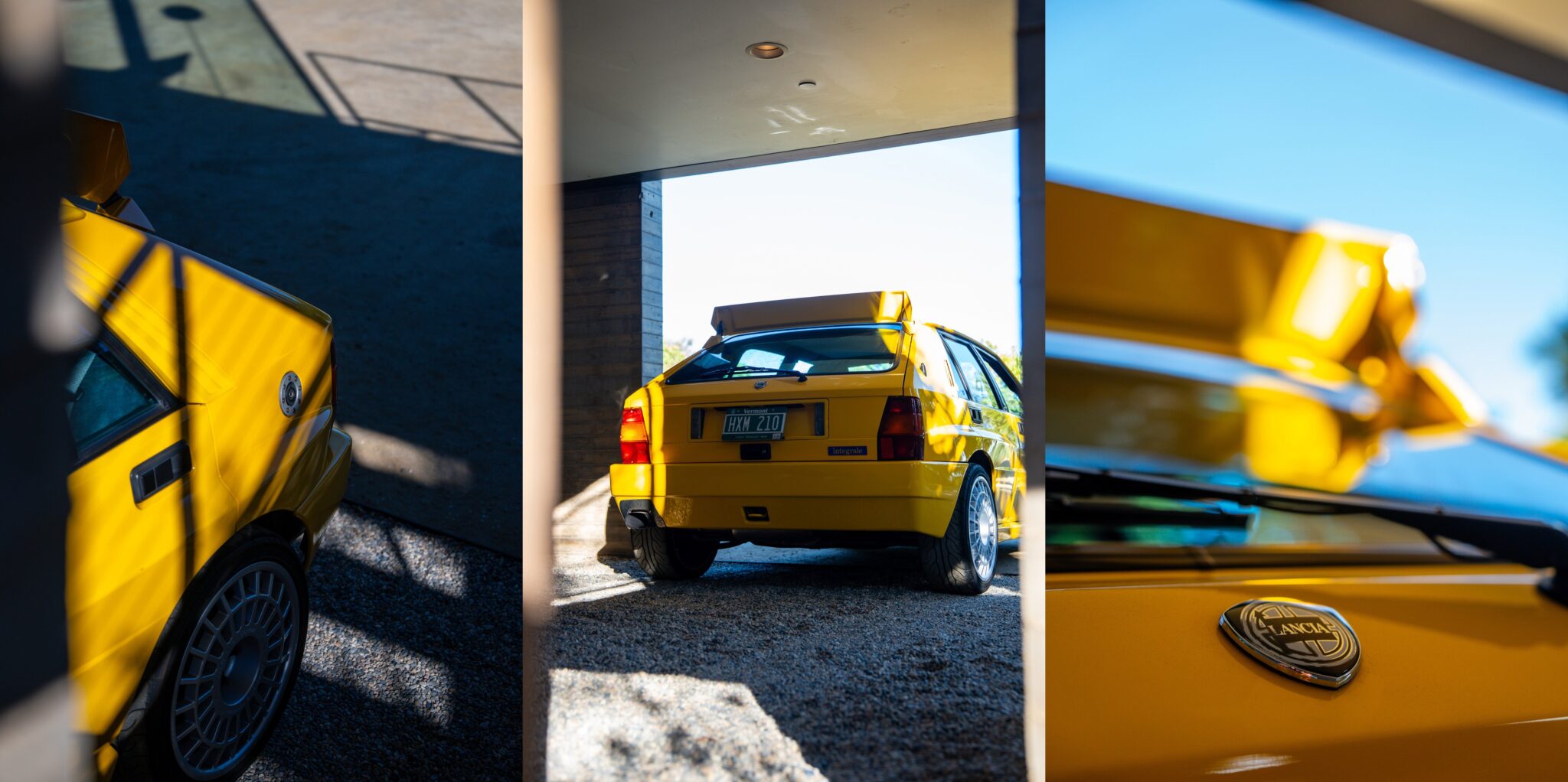
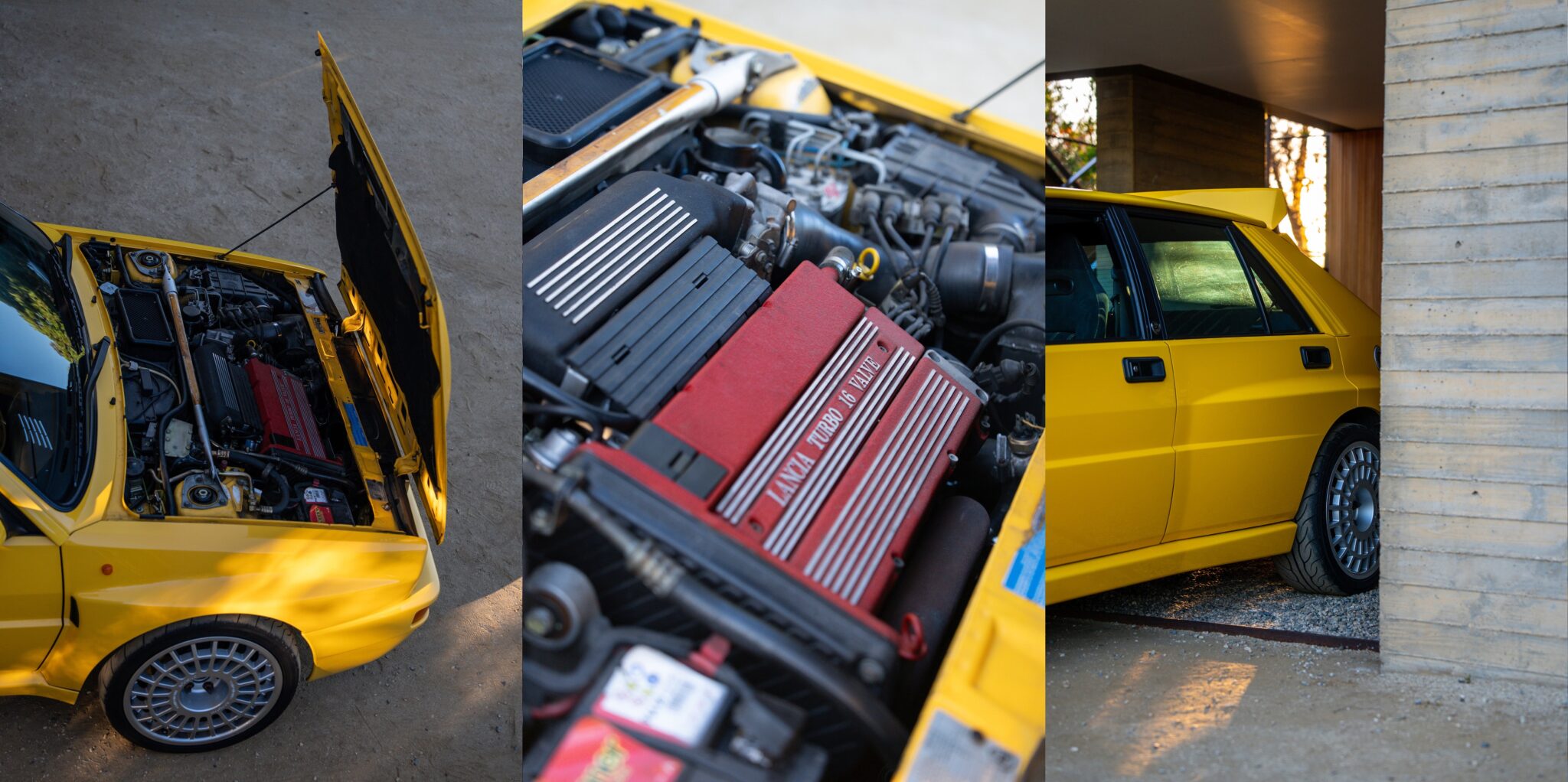
The details are what captivate Goktug. The subtle Alcantara with yellow stitching. The harmony in its proportions. The way the engine bay is tucked and tight, with cooling vents cut into the top because, as he puts it, “it just runs hot.” Function dictating form.
His first drive wasn’t love at first sight. “Honestly, it felt normal,” he admits. “Like just a car.” But the canyons changed that. Nimble. Firm. Alive. The high seating position gave him a view like a rally stage. The Recaros held him steady as the chassis dug in. “It wasn’t meant to be a sports car,” he says, “but it makes you feel like you’re part of something.”
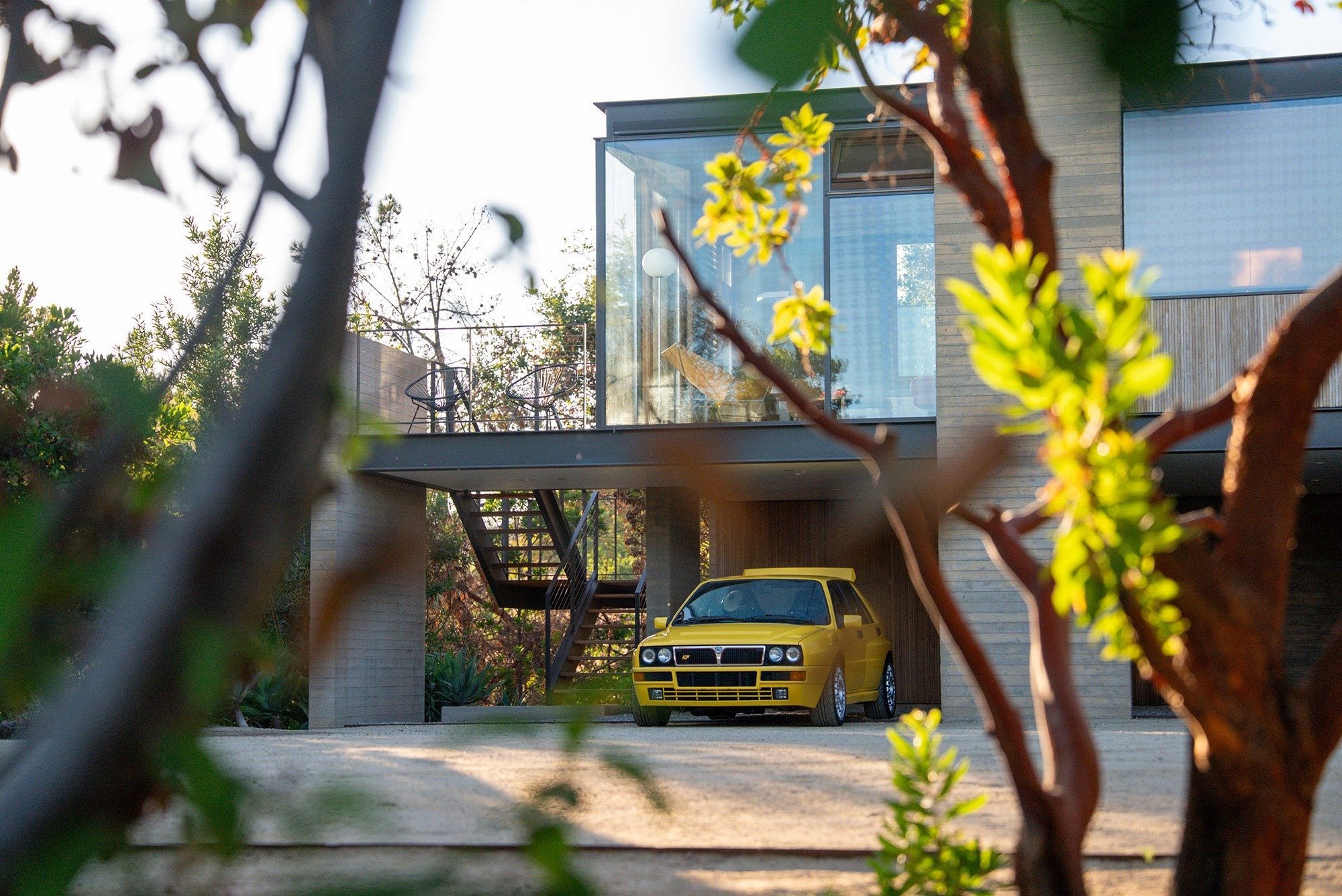
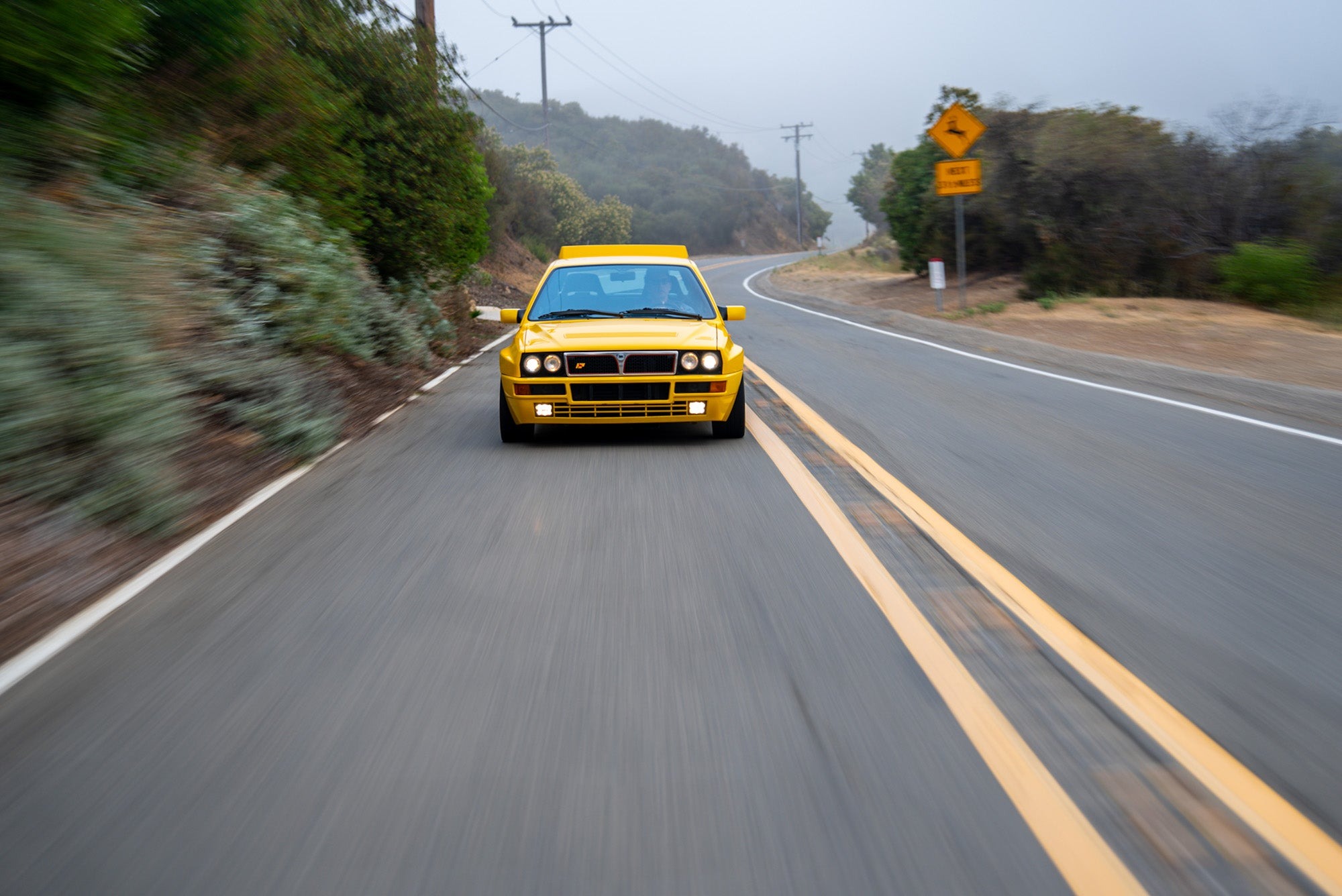
“For me, it’s a moving sculpture,” Goktug says. Its boxy honesty pairs with his brutalist home of concrete, steel, and glass. He smiles when he talks about the way the house appears dramatic and unexpected when you turn the corner. “It surprises you,” he says, “the same way the Integrale does once you really drive it.” Both carry a kind of rawness. Both are beautiful not because they try to be, but because they refuse to be anything else than exactly what they are.
“This car makes you breathe differently,” he adds. “You don’t just drive it. You feel it.” That’s why the Integrale matters. More than a hatchback with flared arches, it’s an exercise in architecture as much as engineering. Every line and angle feels deliberate, as if drafted onto graph paper before it was hammered into steel.
The squared arches, upright stance, and crisp edges give it a presence that’s structural as much as sculptural. It’s a vessel that holds where we used to be as motorists, designers, and engineers. It’s a piece of rally history you can, if you’re lucky, hold in your hands. In the quiet of the morning, before the world starts spinning, it waits for it.

